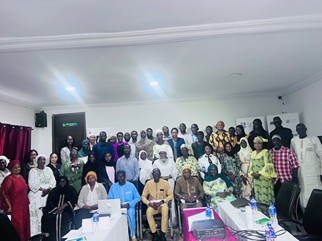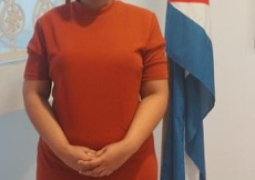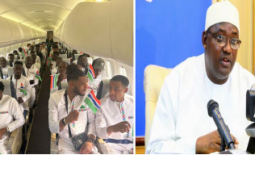
Validation shows that women-led businesses receive only about one per cent of public procurement contracts globally, and The Gambia is no exception. The Ministry of Trade, GPPA and ITC through the SheTrades Initiative, developed a Gender-Responsive Public Procurement Policy aiming to allocate 30% of government contracts to women-led enterprises within five years. This paves the way for greater inclusion of women in national economic development.
ITC Country Representative Yusupha Keita hailed the initiative as a milestone in The Gambia’s journey towards economic inclusion and gender equality. He underscored that while women make up a large percentage of small and medium enterprise owners, less than one per cent of public procurement contracts globally are awarded to women.
“This gap represents not only a challenge but a powerful opportunity to drive inclusive growth and gender equity,” he noted, adding that by “including women-led businesses in public procurement, government can unlock transformative economic benefits while promoting gender equality.”
Keita commended the Ministries of Gender and Trade, GPPA, and the Women’s Business Advisory Group for their collaboration in developing the draft policy, while extending appreciation to the European Union and the United Kingdom for their financial and technical support.
Chairperson of the Women’s Business Advisory Group, Fatoumatta Jawara, described the policy as a “historic opportunity” for women-led businesses to take their rightful place in national development.
“This policy is more than a document,” she said. “It is an opportunity for women-led enterprises and organisations to take their rightful place in shaping The Gambia’s economic future.”
Jawara highlighted WBAG’s advocacy efforts that culminated in a landmark engagement with President Adama Barrow on International Women’s Day, which later led to the inclusion of the policy in his State-of-the-Nation Address. She reaffirmed WBAG’s commitment to supporting its successful implementation through capacity building and continued advocacy.
Deputy PS of MoTIE, Abdoulie Jammeh, in his remarks, reiterated government’s dedication to creating an equitable and inclusive business environment. He noted that the policy is a deliberate response to gender disparities in public procurement.
“Public procurement represents a substantial portion of our national budget,” Jammeh said. “By deliberately creating pathways for women-led businesses to access public contracts, we are not just promoting fairness - we are unlocking a vast potential for innovation and sustainable growth.”
He said further that the initiative is part of ongoing efforts under the SheTrades Gambia Programme, which has already linked women producers to local and international markets, including successful participation in public tenders for COVID-19 food aid supplies.
Keynote speaker Dello Bah, who represented the Deputy Permanent Secretary of the Ministry of Gender, Children and Social Welfare, reaffirmed the government’s commitment to advancing women’s economic empowerment in line with national and global development priorities.
“This policy is not just about procurement procedures; it is about economic justice and opportunity,” he noted. “By making procurement gender-responsive, we ensure that women entrepreneurs have fair access to markets, resources, and opportunities for growth.”
He emphasised that the initiative aligns with the National Gender and Women Empowerment Policy (2023–2032) and the Sustainable Development Goals, particularly SDG 5 on gender equality and SDG 8 on decent work and economic growth.





